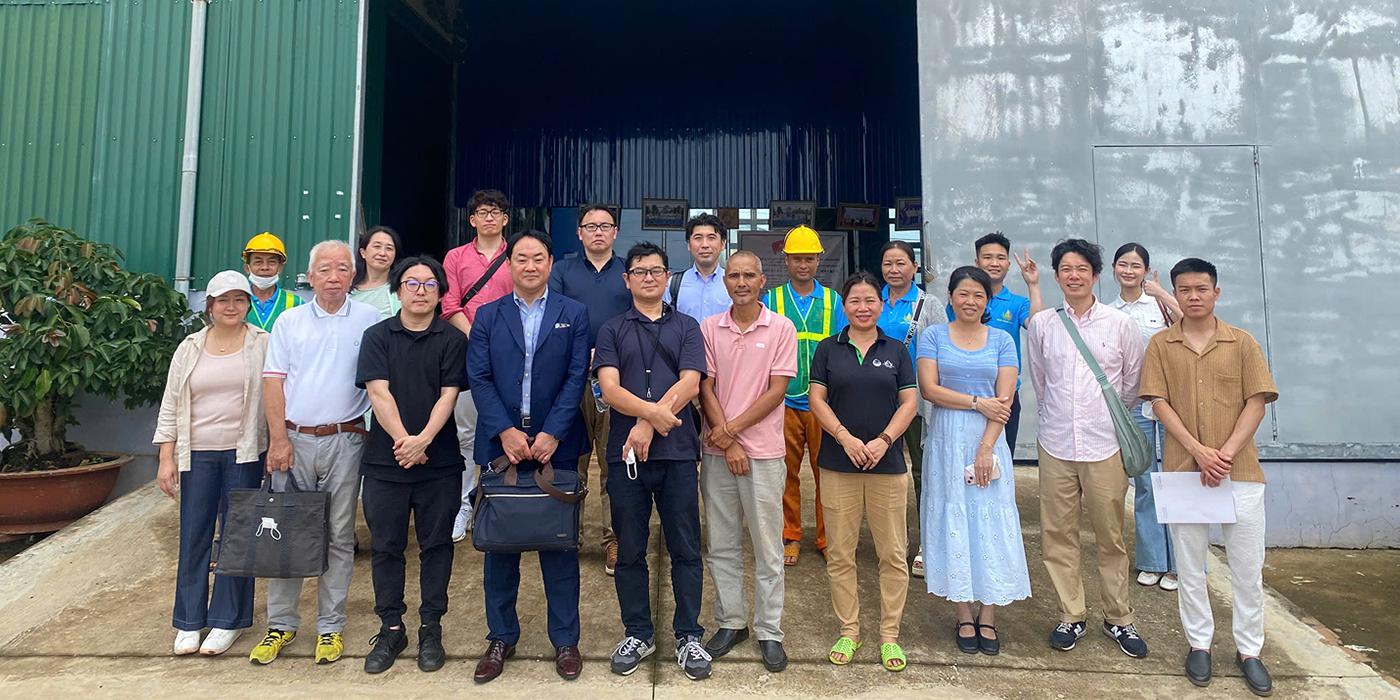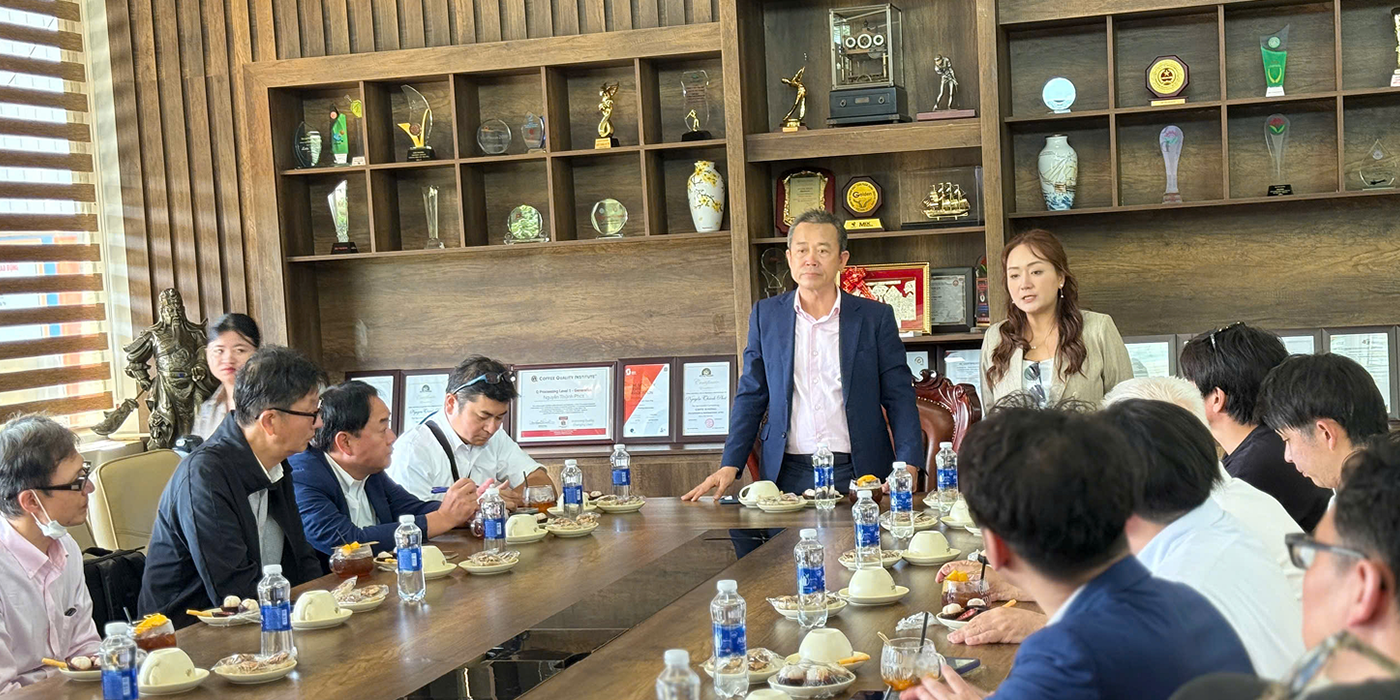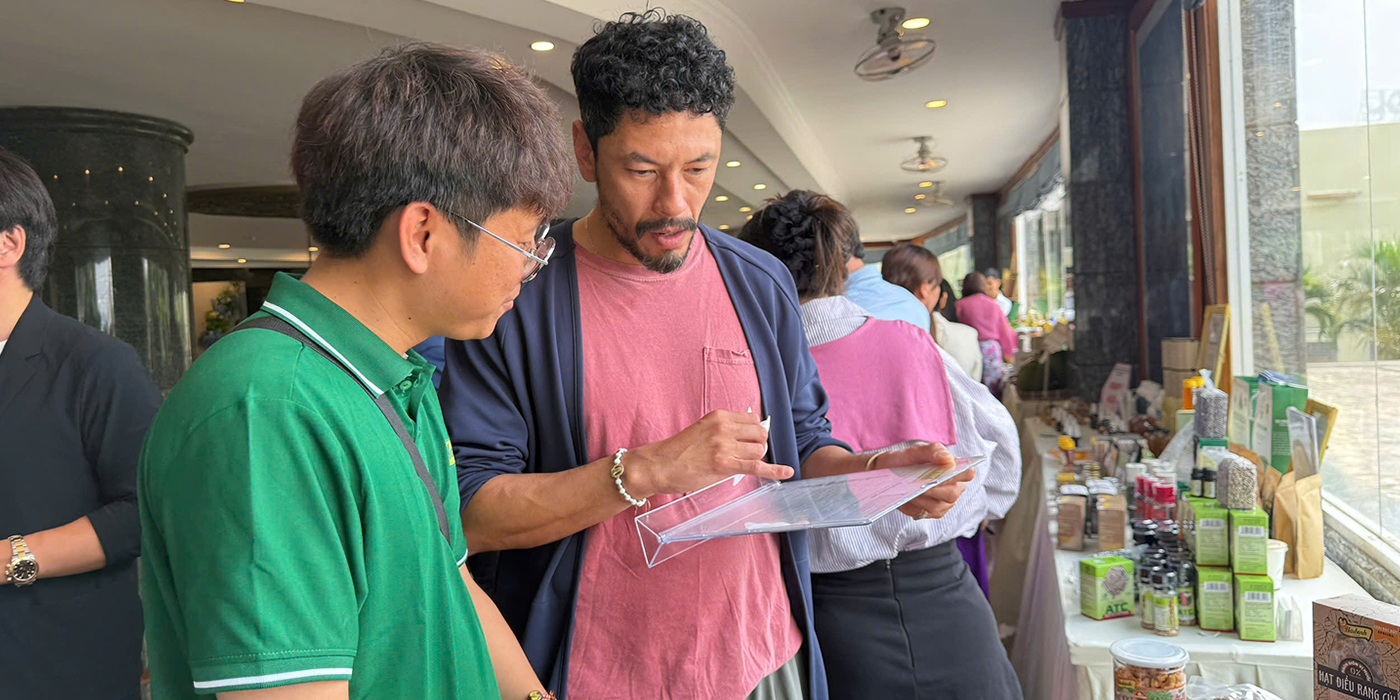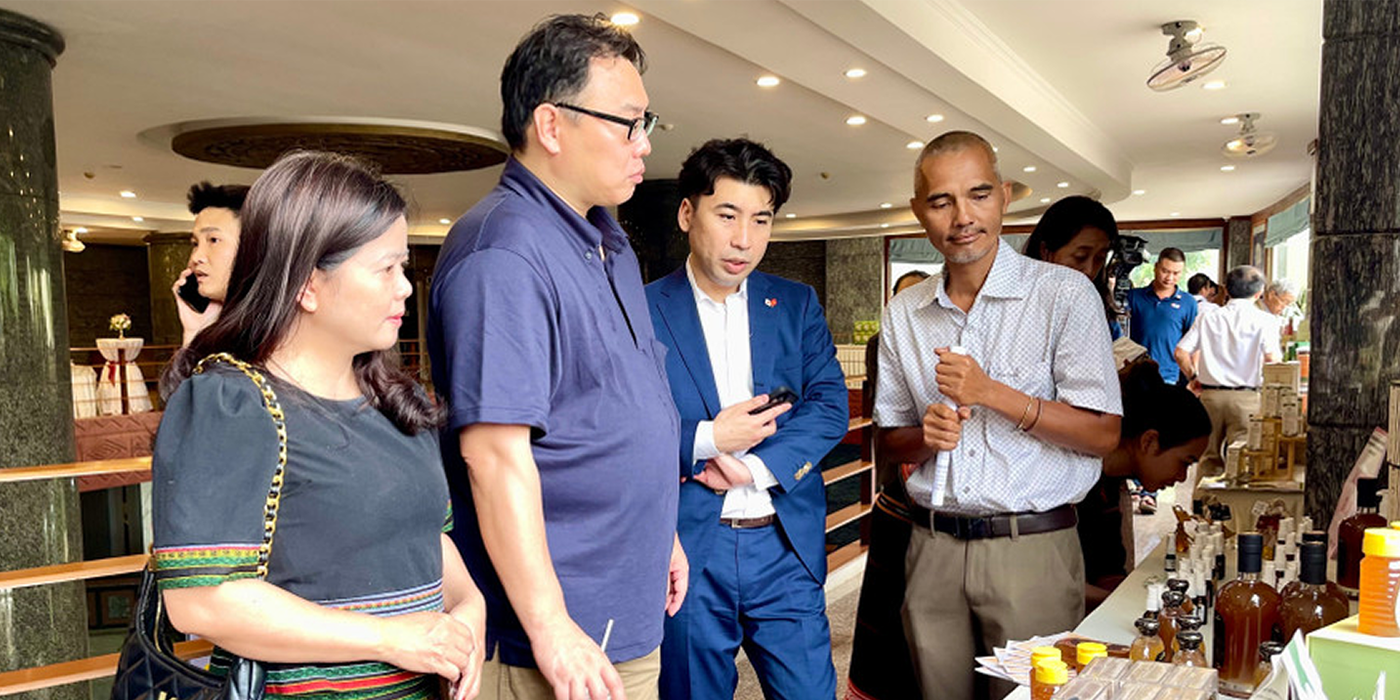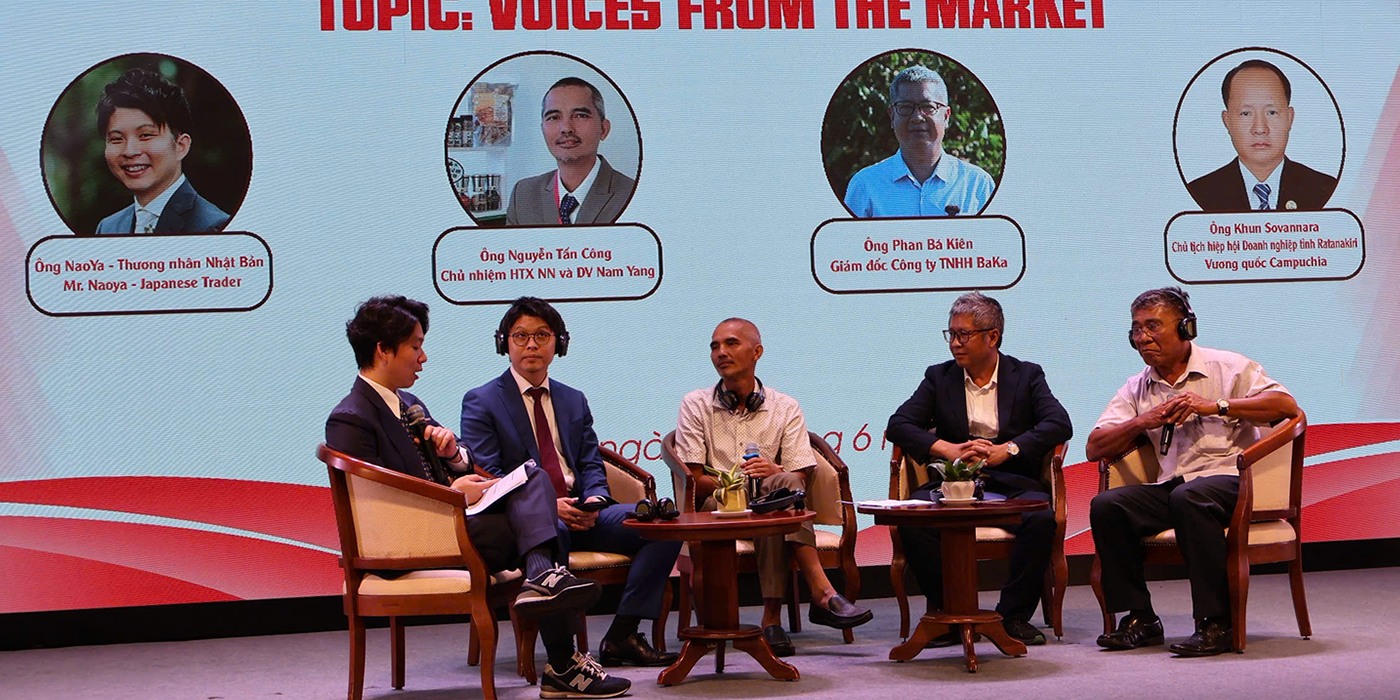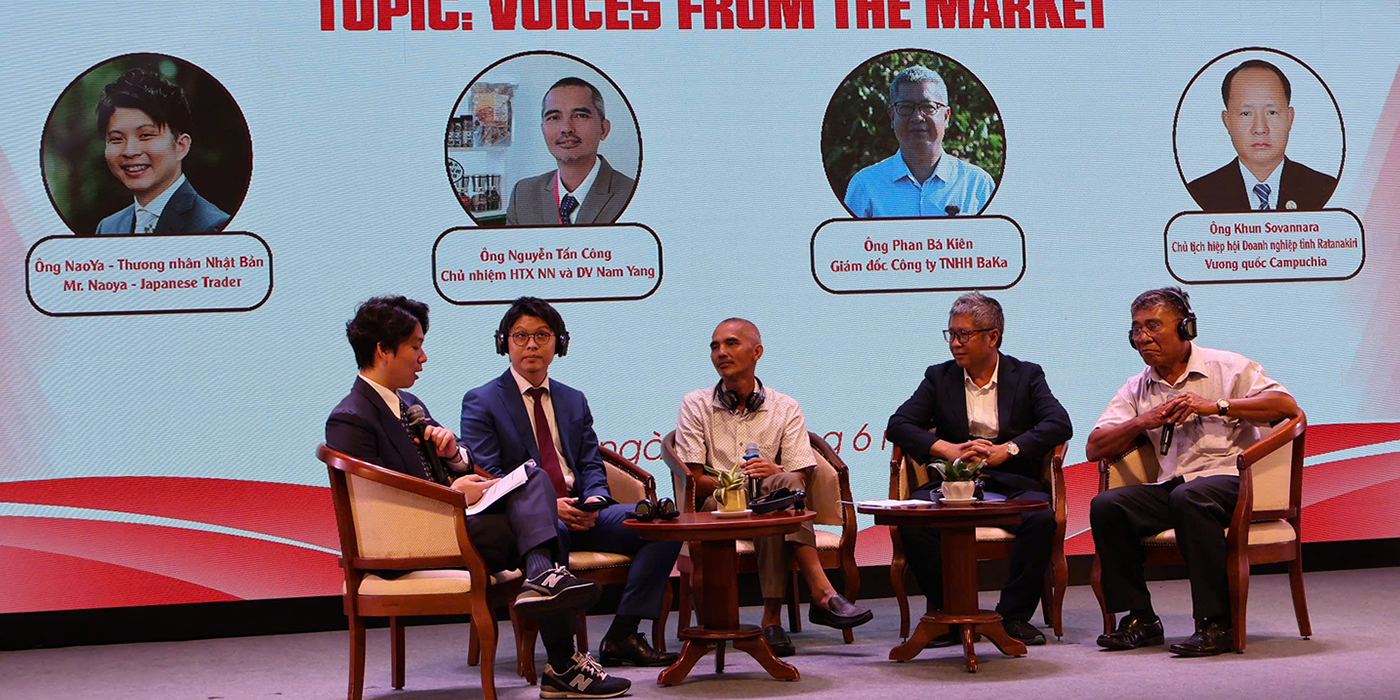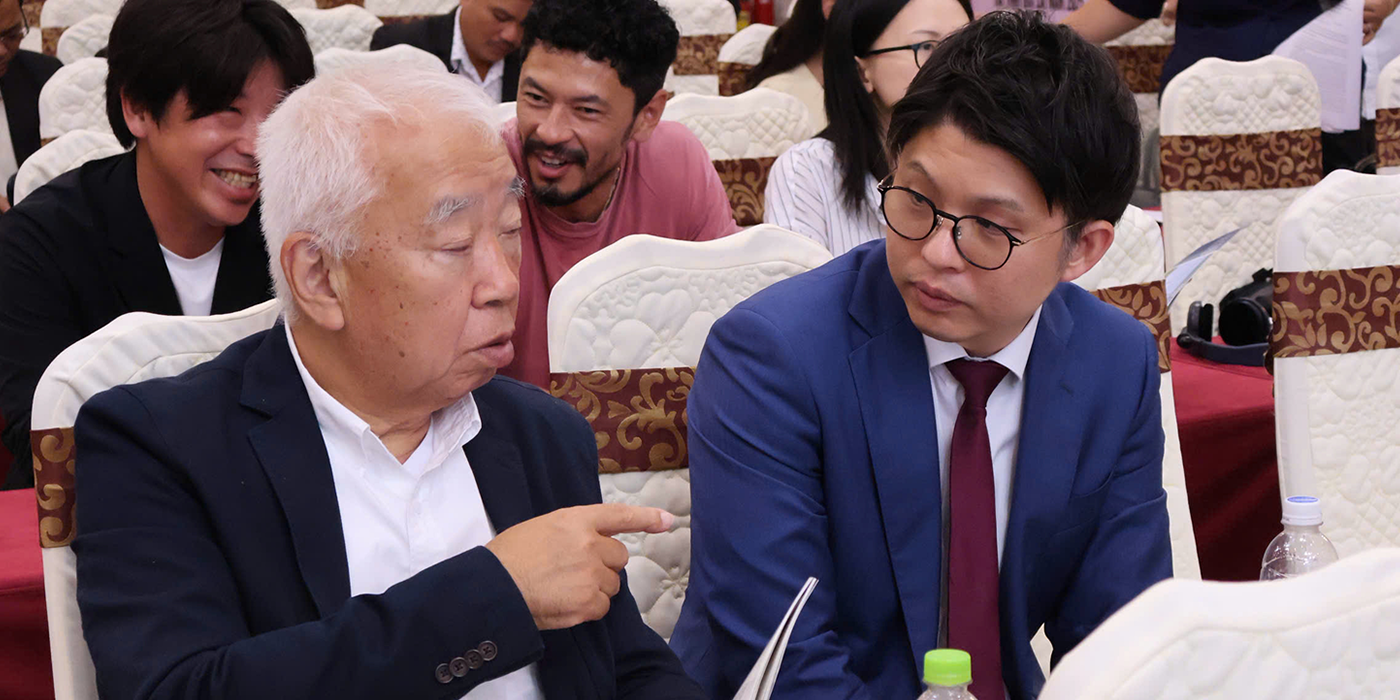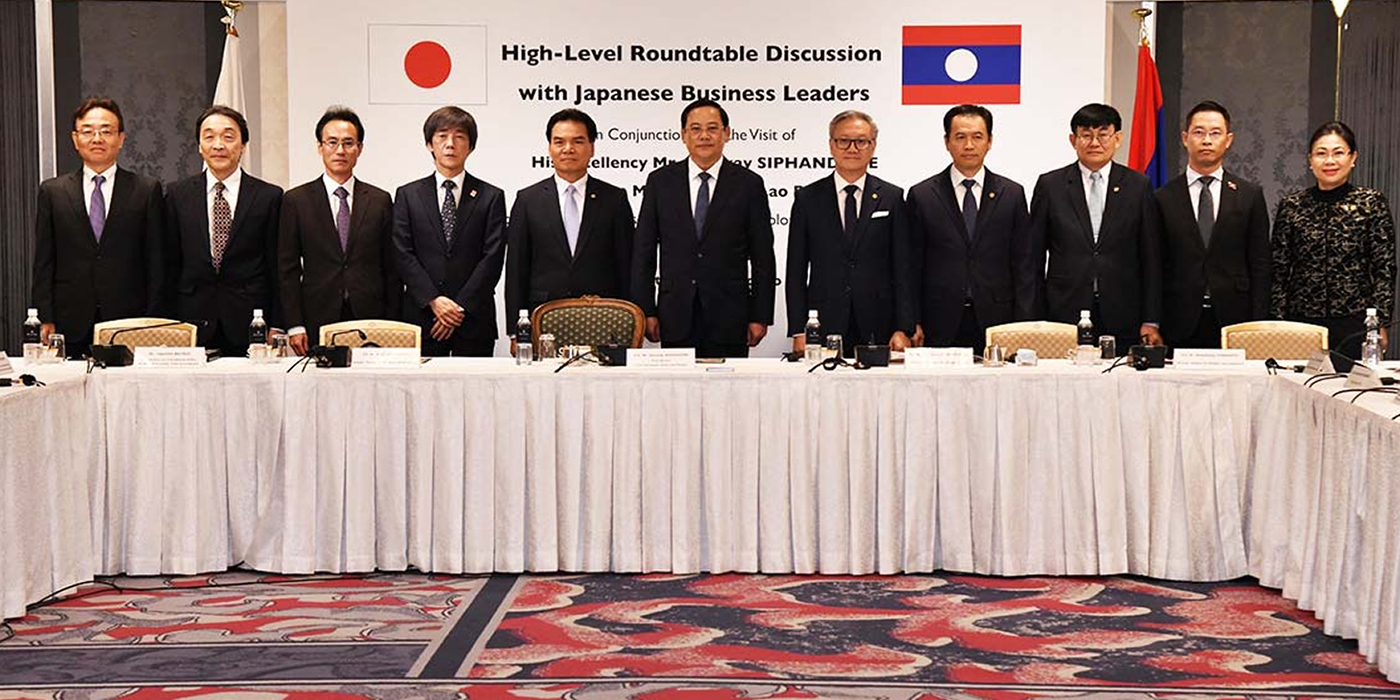NK HOLDINGSは駐日ベトナム大使館および国際機関 日本アセアンセンターとの共催で「次世代のベトナムコーヒー 産業」をテーマとしたイベントを開催
本イベントでは、ベトナム産コーヒーの卓越した品質、競争力のある価格、そして持続可能な生産手法に
焦点を当てるとともに、日本市場における新たなビジネス機会についての展望を多くの日系企業の皆様に
共有しました。
また、カシューナッツ、蜂蜜、茶葉など、ベトナムを代表する他の農産物の生産者も参加し、日本企業の
皆様に新規事業の可能性を示唆するとともに、日越間の経済連携の深化に貢献しました。
イベントの主な内容:
駐日ベトナム大使館 商務参事官 タ・ドク・ミン氏による基調講演内容
ベトナムのコーヒー生産と消費の現状、今後の展望、政府の支援政策について紹介いただきました。
-
品質向上の取り組み(2024年)
フェアトレード認証や有機認証など、国際基準を導入する農家・企業が増加。高品質・有機ベトナム
産コーヒーは、品質要求の厳しい市場において高い評価を得ています。 -
ベトナム政府による支援策
コーヒーの植え替え支援、生産コスト補助(苗木、肥料、優遇融資、税制優遇など)、農業セクター
への投資促進策などを展開し、サプライチェーンの強化と持続可能な成長を図っています。 -
官民連携による生産モデルの推進
政府と企業の協力により、高付加価値コーヒー原料の安定供給体制を確立し、農業と産業の両面で持
続可能な発展を推進しています。
NK HOLDINGS Co., Ltd.は、こうした国際連携を通じてベトナムの豊かな農業資源を世界に広め、日越間
の経済パートナーシップ強化に貢献してまいります。
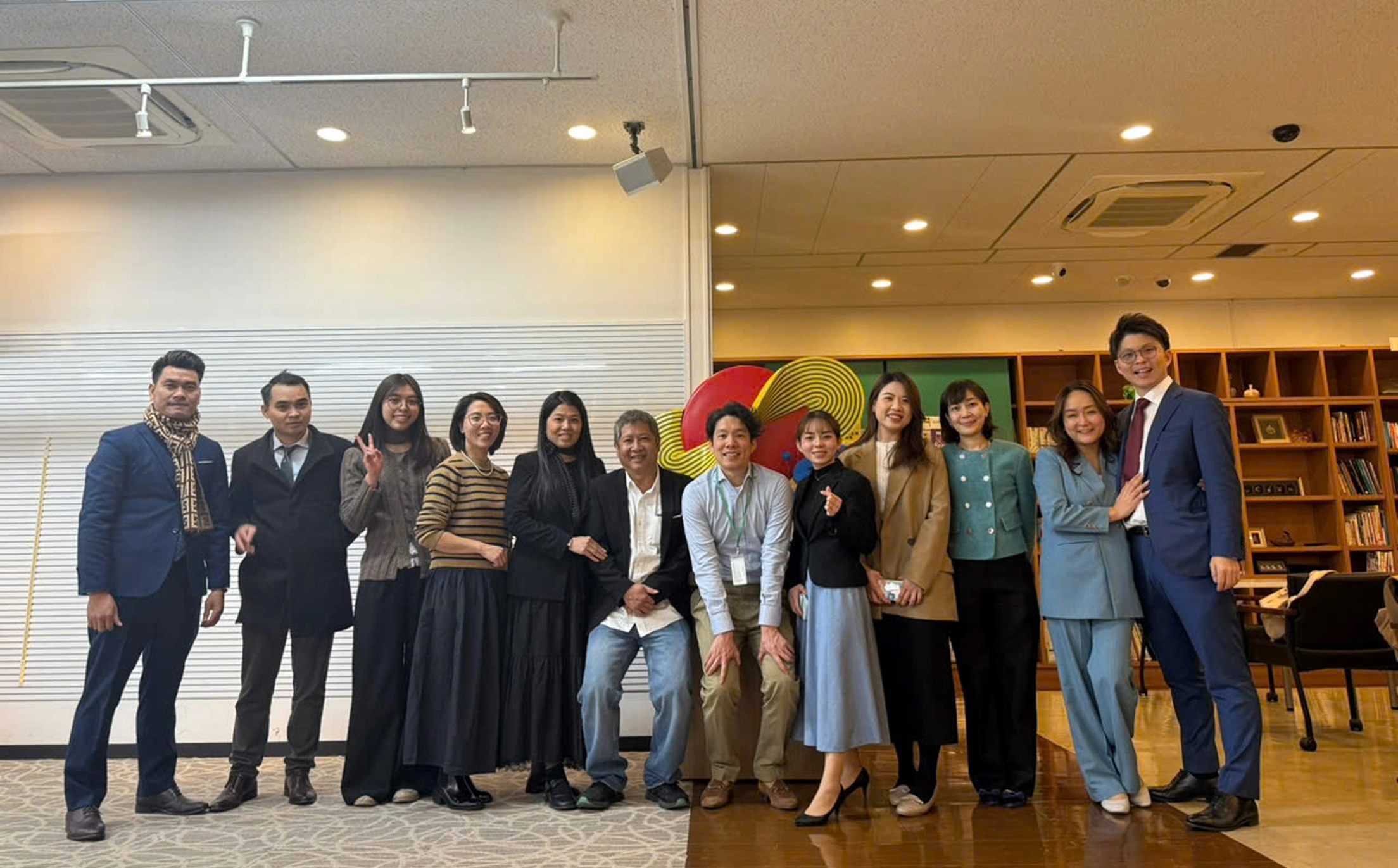
NK HOLDINGS Co., Ltd. 代表取締役会長 Kristina Hagiwara による講演
Kristina Hagiwara代表取締役会長は、ベトナムのコーヒー産業が抱える課題とその戦略的対応、そして
日本市場との適合性について講演を行いました。
ベトナムのコーヒー産業における課題と戦略:
-
生産量の偏り
現在、ベトナムのコーヒー生産の約97%がロブスタ種で占められており、アラビカ種の生産は
限定的です。NK HOLDINGSはこの課題に対応するため、ラオスにおいて約6,000ヘクタールの
アラビカ専用農園の開発を開始。気候・土壌条件に優れた土地を活用し、多様化を図ります。
(参照URL:Wikipedia) -
品質向上への取り組み
ベトナムは主に未加工のコーヒー豆を輸出しており、付加価値の創出が課題となっています。
NK HOLDINGSは以下の方針で高品質製品への転換を進めます- 日本製の先進加工機械の導入
- 輸送・物流の最適化
- 環境保全や地域社会と共生する持続可能な生産体制の確立
これらにより、高付加価値の加工済みコーヒー製品の輸出拡大を目指します。
-
知識移転と人材育成
栽培・加工技術の向上を目的とし、ベトナム人材の海外研修を推進。日本の消費者が好む風味や
品質基準に対応すべく、日本企業との連携により専門家の指導を受ける体制を整えています。
日系企業の皆様の課題に対するソリューション:
- 課題:生産量/品質の変動による原材料コストの不安定化
- 解決策:
- 専用農園モデルの導入により、顧客が特定農園を契約できる仕組みを構築。生産量の安定と
供給確保を実現。 - 栽培~加工~焙煎~物流までの品質安定化対策を通じ、製品信頼性の向上を図ります。
- 専用農園モデルの導入により、顧客が特定農園を契約できる仕組みを構築。生産量の安定と
Hagiwara会長は「こうした業界全体および顧客個別の課題に対応することで、日本市場の基準と期待
に応える次世代のベトナム産コーヒーを提供できる」との自信を示しました。
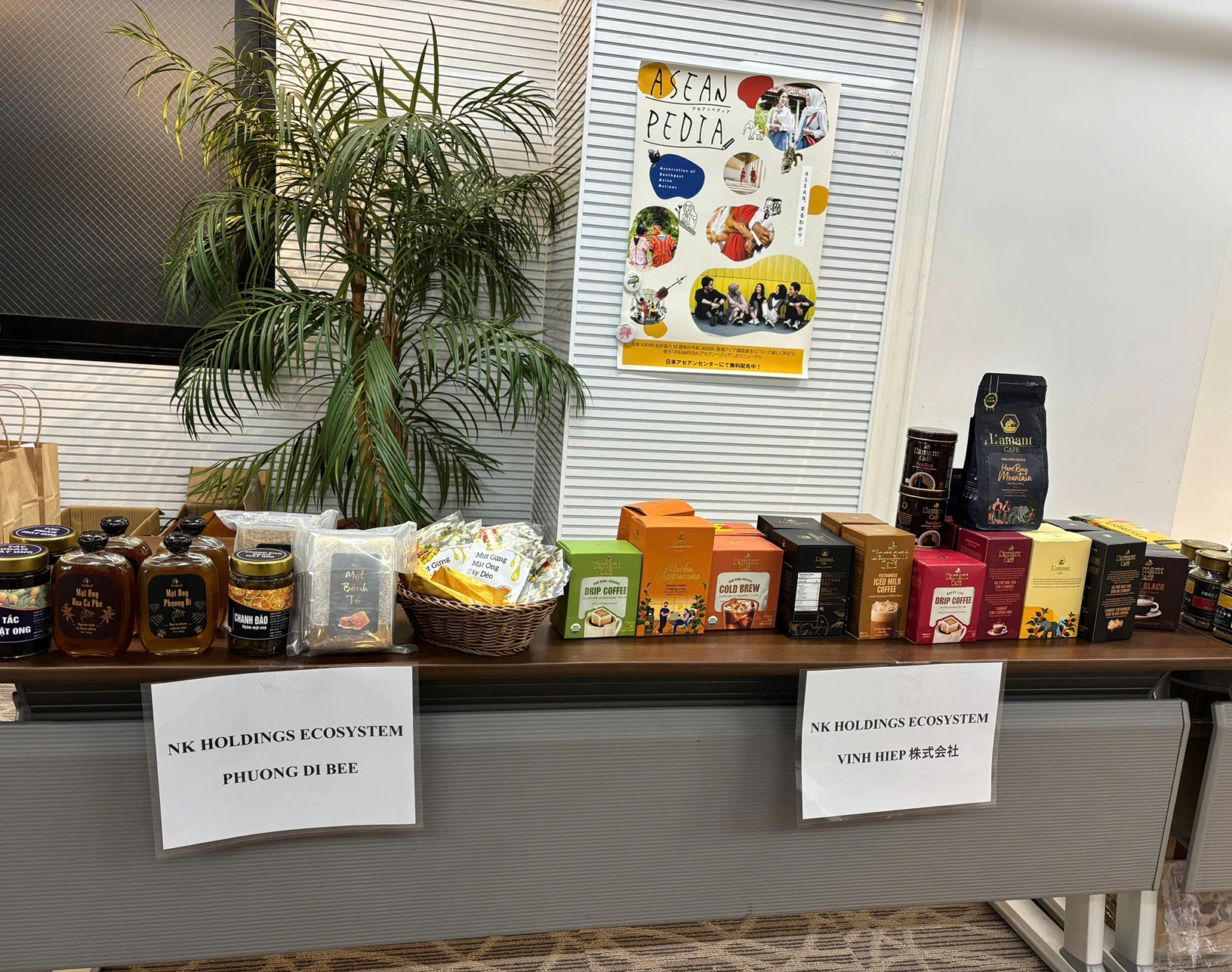
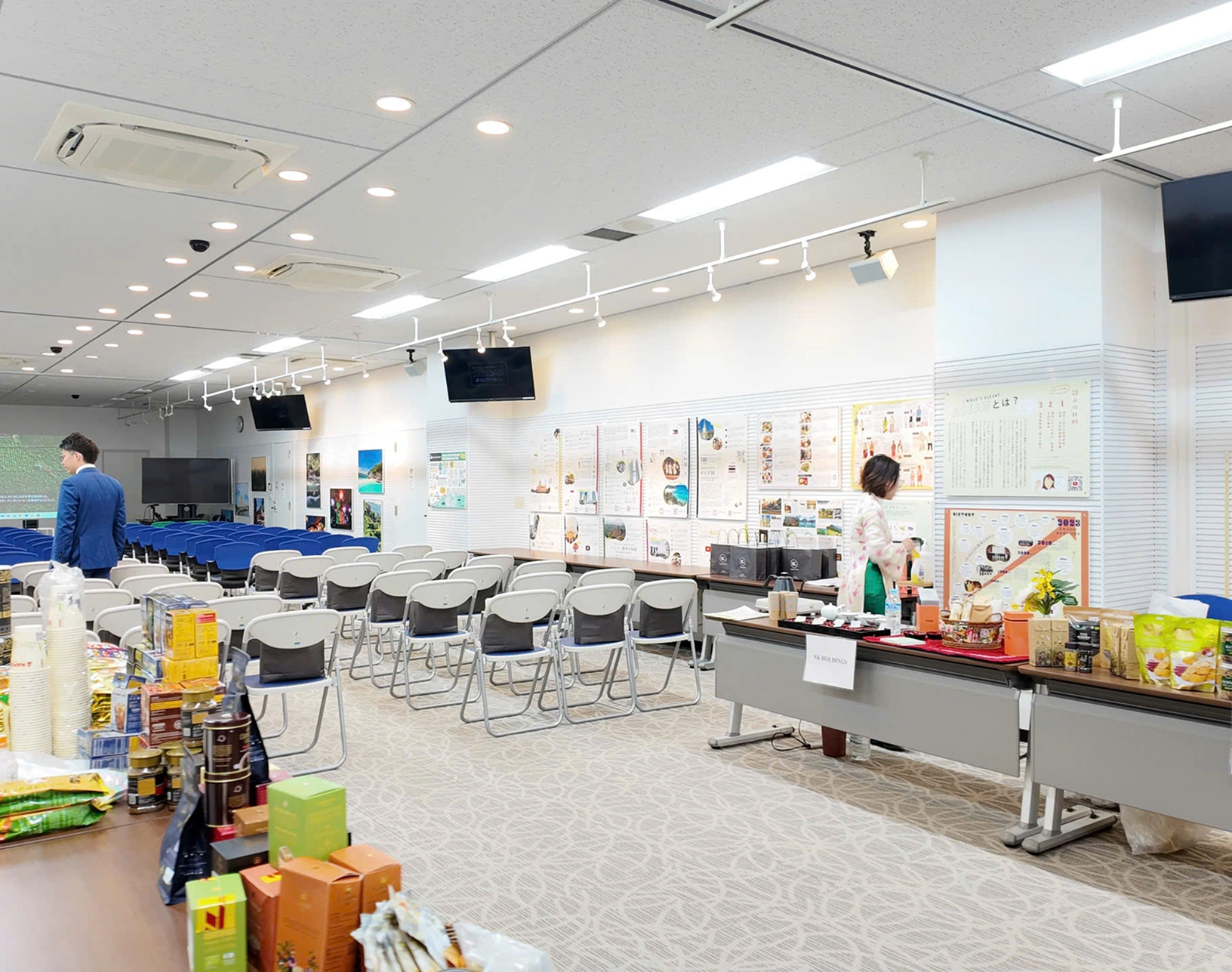
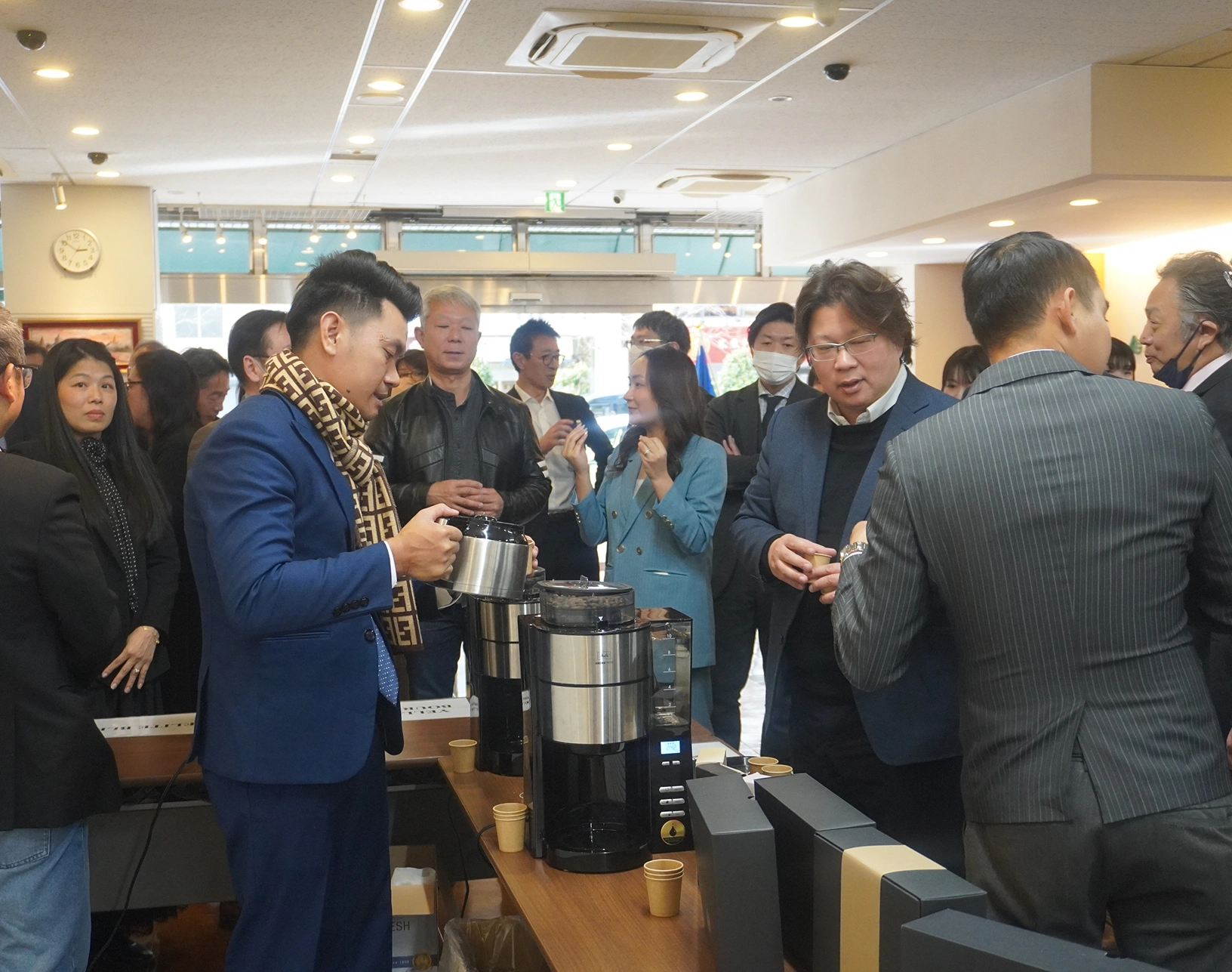
試飲・展示コーナーの様子
イベントには、日本の小売業、食品メーカー、商社、外食産業など多様な業種から多くの来場者が参加しました。
参加者は、ベトナム政府のコーヒー支援政策や民間企業の先進的な取り組みに関心を示すとともに、ベトナム産
コーヒーの品質の高さに驚きを表していました。
また、ビジネスマッチングの場では、日越両国企業間で活発な意見交換が行われ、将来の協業に向けた新たな可能性
が生まれました。
今後もこのような交流の場を提供し、持続可能なビジネスの創出を支援してまいります。ご参加いただいた皆様に
心より感謝申し上げます。

